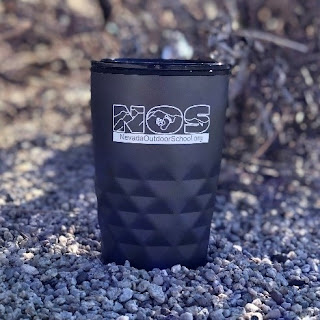As we experience a wave of spring precipitation across northern Nevada, for the past several weeks, 2nd grade students in Humboldt, Lander, Pershing, and Elko Counties participating in our Watershed Hero Field Trip have had the opportunity to see precipitation in action, learning through light rain and hail! Precipitation is an important component of the water cycle – the movement of water through the environment. If starting at precipitation, water falling from the sky in a variety of forms, then next in the water cycle is runoff, water moving from the high points to the low points due to gravity. At the low points, accumulation occurs in rivers, lakes, and oceans. From there, the heat from the sun drives evaporation, where the water turns into a gas and condenses forming clouds. As atmospheric conditions change the gas changes form, and the cycle starts all over again.
A watershed is an area of land that drains water, sediment, and dissolved materials to a common water body, such as a river. The size of watersheds varies, the largest watershed in the United States is the Mississippi River Watershed draining over 1 million acres. A watershed contains both biotic (living) and abiotic (nonliving) components. Humans influence and impact the structural and functional characteristics of watersheds. These influences and impacts may be beneficial or disruptive to the watershed.
One the unique aspects of the Humboldt River Basin Watershed is that it is wholly located in northern Nevada. The watershed spans from near Wells to the Humboldt Sink, not far from Lovelock. While the straight-line distance between these two communities is about 250 miles, the meandering nature of the river causes it to measure about 330 miles. The Humboldt River runs entirely within Nevada! The flow of the Humboldt River is highly variable because it is entirely dependent on precipitation. The source waters for the river derive from runoff from the Jarbidge, Independence, and Ruby Mountains in Elko County. The Humboldt River is contained entirely within the Great Basin, meaning that the Great Basin retains the water and there is no outflow to another body of water such, as an ocean.
As we know from living in a desert, water is a precious commodity! The quality (how good) and quantity (how much) of available water in the desert has health, recreational, and financial impacts on all who live here, human and non-human. Because water cannot be created, water education is critical. It is important that we all learn to protect, conserve, and better manage water resources in our local region. When we understand the interconnectedness of all living things, and our collective dependence of water, we become more united in the drive to keep water clean.
At Nevada Outdoor School, we love to get people outside and deepen their connection to and care for the natural world. The 2nd grade students who attend our Watershed Heroes field trip can now make choices that will respect and help protect their watershed. No matter our age, our actions matter! By picking up trash, not allowing oil and soap to drain into the river, and being aware of erosion along streams, you too can be a Watershed Hero! Go on Heroes, get outside and enjoy the Humboldt River Basin, just remember, your actions not only impact your local community, but everything down stream as well.






